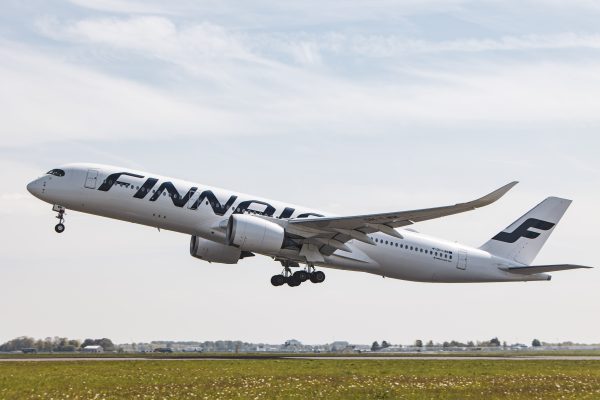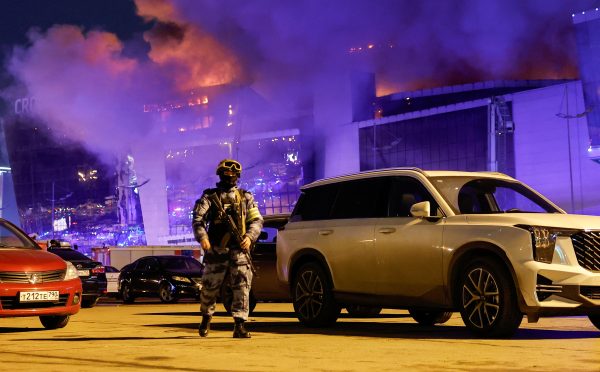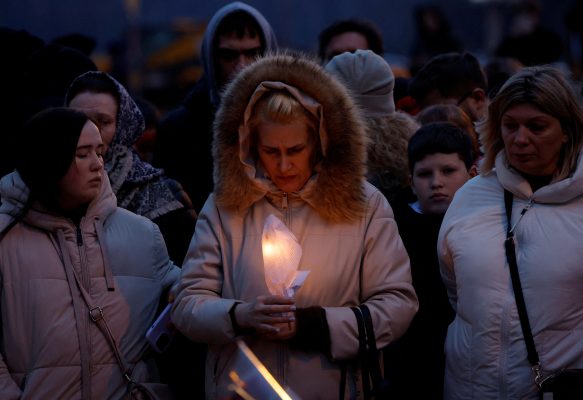With the truck blockade on the Polish-Ukrainian border now entering its second month, the economic ramifications are becoming painfully clear.
In a statement released by the Ukrainian government on December 5, exports through the affected crossing have dropped by 40%, disrupting supply chains, and spurring considerable losses for Ukrainian carriers and in customs duties. Despite pledges from the drivers, military supplies have been caught up in the chaos.
With an on-off blockade now underway on the Slovak border, and another threatened on the Hungarian frontier, this crisis is escalating.
So far, on the Polish side, little has been done to resolve the issue, and while new relief crossings have been opened, the grievances that underpin the conflict have gone largely unanswered by the authorities. The political power vacuum that now overshadows post-election Poland (which may be resolved with Donald Tusk’s elevation to prime minister on December 12), has not only provoked this crisis but has allowed fringe groups to stoke anti-Ukrainian sentiment.
Since Poland’s watershed October election, the days of the outgoing Law and Justice (PiS) “caretaker” government are numbered. As such the government has little incentive to solve a sticky problem that can be easily passed to an incoming, rival government.
European Union (EU) transport Commissioner Adina Vălean accused the PiS government of having “no good faith in finding a resolution,” after a “nearly complete lack of involvement of Polish authorities.” These accusations came with a further threat of EU legal action if the crisis was allowed to continue.
Commissioner Vălean’s diagnosis of government apathy also corresponds to the feelings on the ground. A spokesperson for the Trucker’s Union (Committee for the Defense of Carriers and Transport Employers), Jacek Sokół, stated that as of November 27: "There are no constructive talks, nobody wants to meet with us" in reference to the government.
Likewise a co-organizer of the blockade and Union leader Tomasz Borkowski, also placed the onus on the government stating in a recent interview “Ukrainians defend their market more, our government unfortunately did not protect us as it should.”
This inaction on the part of the authorities has left the door open to others seeking to make political hay out of the crisis.
First among these is the far-right wing nationalist party Konfederacja, which rocketed to nearly 15% in the polls only to be crushed in the October election, when it won just 7%.
Despite (or because of) its weakened position, the party has championed the blockade while the government sits on its hands. One of the co-organizers of the blockade, Rafał Mekler, also ran as a Konfederacja candidate in the last election.
This is also where the narrative shifts, not only blaming the political establishment but also fanning antagonism between Poles and Ukrainians. Konfederacja as a whole has garnered a reputation as “anti-Ukrainian” since Russia’s all-out invasion in 2022, with Mekler’s party faction, The National Movement (Ruch Narodowy), led by Krzysztof Bosak, has been particularly outspoken on the blockade.
A recent post stated that “Ukraine Enriches itself at the expense of Poland,” alongside a similar post that stated that “Ukrainian firms sell weapons to Russia,” and added, “It is time to review our attitude towards Ukraine.”
Despite Mekler’s assertion that “we are not Kremlin agents,” Konfederacja has leveraged the crisis to further the party’s anti-Ukrainian narratives and to undermine solidarity between Poland and Ukraine. Whatever the party says, the blockade clearly aids Russia’s war effort by slowing supplies to Ukraine.
Konfederacja now describes itself as the only truly “pro-Polish” party. In a statement made alongside Rafał Mekler, Jacek Sokół from the Trucker’s Union stated “We are not against Ukrainians, we want to help them, but our interest and economic security are also important.”
This leaves the question: When will the effective government be restored? The answer is soon.
By December 11th PiS Prime Minister Mateusz Morawiecki’s proposed government will be subjected to a vote of confidence, which it is unlikely to win.
If so, Tusk’s coalition government is expected to secure its mandate as early as December 12. With this, a new government will likely work quickly to defuse the blockade crisis and claim an early win.
Strong leadership will be key, and the handling of this crisis may be an indicator of how effective this new government will be.
Nathan Alan-Lee is a doctoral researcher at the School of Slavonic and East European Studies, University College London, and is a commentator on Polish and regional affairs.
Europe’s Edge is CEPA’s online journal covering critical topics on the foreign policy docket across Europe and North America. All opinions are those of the author and do not necessarily represent the position or views of the institutions they represent or the Center for European Policy Analysis.





